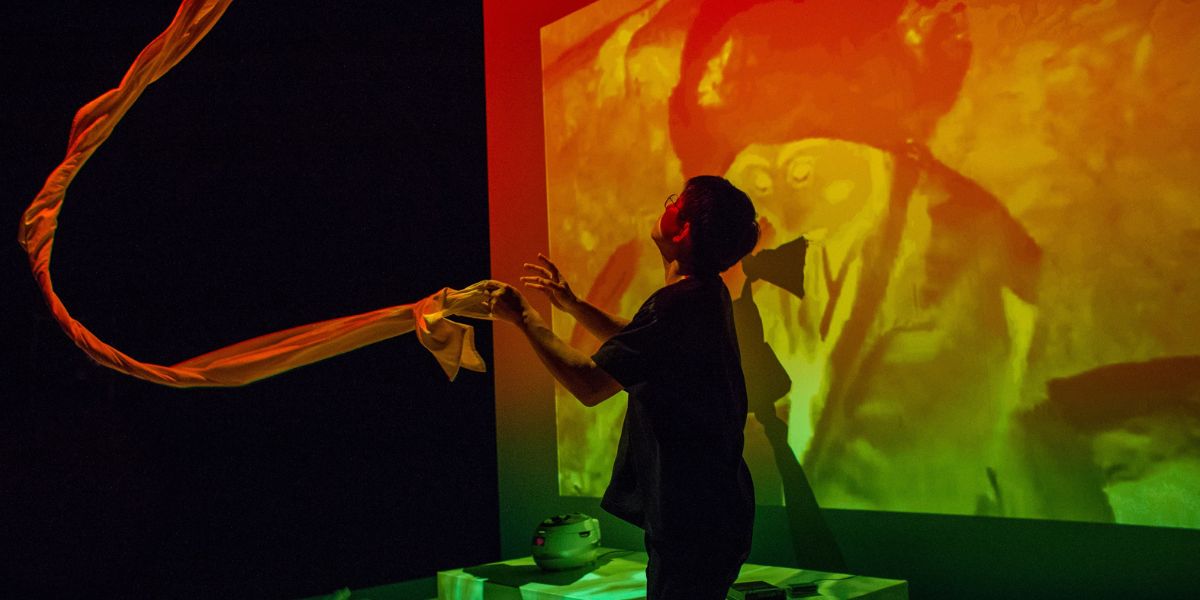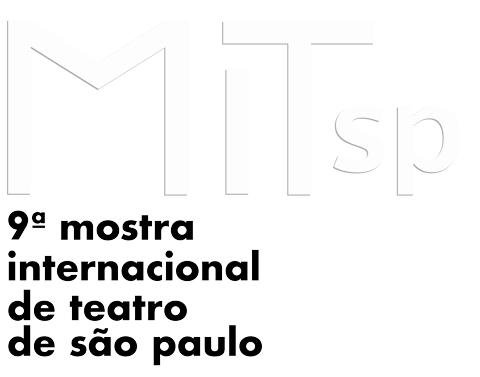The History of Korean Western Theatre
Jaha Koo / CAMPO
60 min | Parental Rating 12+

SYNOPSIS
Critically investigating the influence of the Western canon on the history of Korean theatre, Jaha Koo points to the future of new generations. The solo weaves historical facts into the South Korean artist’s personal accounts to raise questions about tradition and authenticity, meticulously exposing the tragic impact of the past on contemporary times. By questioning the real space of the Korean theatrical tradition, the show seeks to break with a logic full of self-censorship and keeping up appearances.
The Hamartia Trilogy
The History of Western Korean Theatre is the last part of Jaha Koo’s Hamartia Trilogy, together with the shows Cuckoo and Lolling and Rolling. The imperialism of the past and present, and its sometimes unexpected personal impact are the common threads of these three works of documentary theatre presented at MITsp. In Greek, hamartia means “tragic flaw or shortcoming”, a concept that interweaves each of the works differently, which themes involve the clash between Eastern and Western cultures.
HISTORY
Jaha Koo is a South Korean theatre creator and composer. His work, closely linked to politics, history and his own personal issues, moves between multimedia and performance, bringing music, videos, texts and authorial installations. He currently presents his shows around the world. In 2024, he is working on a new creation, Haribo Kimchi, and on his musical project, GuJAHA. The artist took his first steps at the Brussels Arts Workshop Pianofabriek and the Bâtard Festival. Since 2017, he has been creating his work supported by CAMPO, a research, development and artistic production platform based in Belgium.
CRITIC
The show’s success lies in Jaha Koo’s aesthetics and sensibility. He manages to intertwine his intimate and personal search with that of his nation. […] With an amazing talent for reinventing formats throughout the presentation, Jaha Koo bridges the richness of Eastern cultural traditions and the use of technology and contemporary art to anchor us in the present. All this to make us reflect on our collective future.
The show confronts us with our own lack of understanding of traditional Korean culture and its history, but also with the dangers of fierce, large-scale Westernization. The play leads us to ask what parts of our own cultural heritage we allowed to disappear collectively, out of shame or desire for conformity, under the steamroller of globalisation.
Daphné Bathalon, theatre.quebec
In just one hour, the solo manages to defy time and highlight a duality that transcends theatrical reality: one that places the profane against the sacred. In a corner of the world caught between frightening totalitarianism and savage capitalism, Jaha Koo’s reflections are patently relevant.
Dominique Denis, Jeu Revue de Théâtre
TECHNICAL SHEET
Concept, text, direction, music and video: Jaha Koo
Performance: Jaha Koo, Seri and Toad
Dramaturgy: Dries Douibi
Scenography and drawing: Eunkyung Jeong
Artistic advisor: Pol Heyvaert
Technical: Korneel Coessens, Jan Berckmans, Bart Huybrechts, Koen Goossens (and Jonas Castelijns)
Hardware hacking: Idella Craddock
Research: Eunkyung Jeong and Jaha Koo
Research assistance: Sang Ok Kim
Interview: Jooyoung Koh, Kiran Kim and Kyungmi Lee
Production: CAMPO
Co-produced by: Kunstenfestivaldesarts (Brussels), Münchner Kammerspiele, Frascati Producties (Amsterdam), Veem House for Performance (Amsterdam), SPRING performing arts festival (Utrecht), Zürcher Theaterspektakel, Black Box teater (Oslo), International Summer Festival Kampnagel (Hamburg), Tanzquartier Wien, wpZimmer (Antwerp), Théâtre de la Bastille (Paris) and Festival d’Automne à Paris
Residencies: Kunstencentrum BUDA (Kortrijk), wpZimmer (Antwerp), Decoratelier Jozef Wouters (Brussels) and Doosan Art Center (Seoul)
With the support of: Beursschouwburg, Vlaamse Gemeenschapscommissie and Amsterdams Fonds voor de Kunst
CAMPO is supported by the city of Ghent and the Flemish Community
THIS SHOW IS SUPPORTED BY THE KOREAN CULTURAL CENTER IN BRAZIL.
